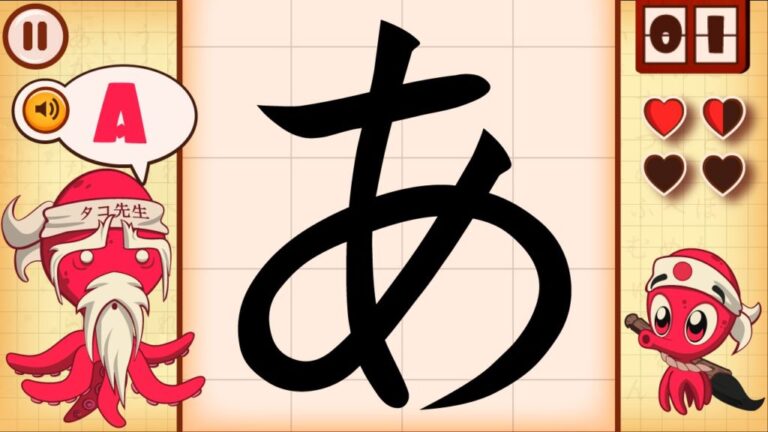Your Guide to Business Japanese, from Vocabulary to Essential Etiquette

Doing business in Japanese has different rules than you may be used to. There’s a maze of customs to navigate, from properly addressing your superiors to the etiquette of negotiations.
Whether you’re diving into the polite world of emails and phone calls or gearing up for important negotiations, we’ve got you covered with practical tips and a sprinkle of cultural wisdom.
Download: This blog post is available as a convenient and portable PDF that you can take anywhere. Click here to get a copy. (Download)
Essential Business Etiquette
Bowing Etiquette
Bowing is a deeply ingrained cultural gesture in Japan, expressing respect and deference. The deeper the bow, the greater the respect shown.
Types of bows include:
- 会釈 (Eshaku): A slight nod, used for casual greetings or acknowledging someone.
- 敬礼 (Keirei): A deeper bow, used for greetings, apologies, and showing gratitude.
- 最敬礼 (Saikeirei): The deepest bow, used for utmost respect and apologies.
Formality
When addressing colleagues, superiors and clients, it’s important to use the appropriate honorifics:
- さん (-san): General term of respect used for colleagues, clients and acquaintances.
- 様 ( -sama ): Used for customers, superiors and guests to show high respect.
- 先生 (-sensei): Used for teachers, doctors and other professionals.
敬語 (Keigo) is a complex system of grammar and vocabulary used to show respect and social distance. Different levels of keigo exist, depending on the relationship between the speaker and the listener.
Mastering keigo isn’t essential for basic business interactions, but it does demonstrate cultural awareness and respect.
Business Cards
Business cards, known as 名刺 (meishi) are considered an extension of oneself and treated with utmost respect.
There are a few rules of etiquette you should follow to avoid a business card faux pas:
- Present the card with the Japanese side facing the recipient, using both hands.
- Accept the card with both hands, bowing slightly.
- Read the card carefully and acknowledge the recipient’s title and position before putting it away.
More Information About Business Culture
Here are a few more tips for Japanese business settings:
- Japanese companies are very hierarchical, with clear lines of authority and decision-making flowing from the top down.
- Companies typically have a pyramidal structure with well-defined job titles.
- Gifts are a common way to build relationships and show appreciation in Japanese business culture. The act of giving and receiving gifts is as important as the value of the gift itself.
- Networking is essential for building relationships and finding business opportunities. Be patient, respectful, and willing to invest time in developing relationships.
- Punctuality is paramount in Japanese business culture. Being late is considered disrespectful and unprofessional.
Early is best: Aim to arrive at least 5-10 minutes early for meetings and appointments. - Dress code in business situations leans towards conservative and professional attire, and a well-groomed appearance is essential. Suits with a tie are expected, dark colors preferred.
Essential Business Vocabulary
Be prepared to head into the office with these common words, phrases, greetings and polite expressions in a business context.
| Japanese | Romaji | English |
|---|---|---|
| おはようございます | Ohayou gozaimasu | Good morning |
| こんにちは | Konnichiwa | Good afternoon |
| こんばんは | Konbanwa | Good evening |
| 失礼いたします | Shitsurei itashimasu | Excuse me (used when entering or leaving a room or conversation) |
| よろしくお願いいたします | Yoroshiku onegaishimasu | Please (used when making a request or at the end of a meeting) |
| お疲れ様でした | Otsukaresama deshita | Thank you for your hard work |
| ご苦労様です | Gokurousama desu | Thank you for your hard work |
| ありがとうございます | Arigatou gozaimasu | Thank you |
| すみません | Sumimasen | Excuse me / I'm sorry |
| 失礼いたします | Shitsurei itashimasu | Excuse me (used when entering or leaving a room or conversation) |
| お願いいたします | Onegaishimasu | Please / I request |
| お疲れ様です | Otsukaresama desu | Thank you for your hard work (used during work) |
| 初めまして | Hajimemashite | Nice to meet you |
| ごめんください | Gomen kudasai | May I come in? / Excuse me |
| 名刺 | Meishi | Business card |
| 仕事 | Shigoto | Work |
| 会議 | Kaigi | Meetng |
| プレゼンテーション | Purezenteeshon | Presentation |
| 取引先 | Torihikisaki | Business partner |
| 報告書 | Houkokusho | Report |
| 提案 | Teian | Proposal |
| 契約 | Keiyaku | Contract |
| 予算 | Yosan | Budget |
| 目標 | Mokuhyou | Objective |
| 部下 | Buka | Subordinate / Junior |
| 上司 | Joushi | Boss / Superior |
| 協力 | Kyouryoku | Cooperation |
| お知らせ | Oshirase | Announcement |
| 承認 | Shounin | Approval |
| 進捗報告 | Shinchoku houkoku | Progress report |
| 質問 | Shitsumon | Question |
| 面接 | Mensetsu | Job interview |
| 会社 | Kaisha | Company |
| 社長 | Shachou | President / CEO |
| 部門 | Bumon | Department |
| プロジェクト | Purojekuto | Project |
| 経営 | Keiei | Management |
| 取引 | Torihiki | Transaction / Business |
| 契約 | Keiyaku | Contract |
| 顧客 | Kokyaku | Customer / Cliet |
| マーケティング | Maaketingu | Marketing |
| 販売 | Hanbai | Sales |
| 利益 | Rieki | Profit |
| 損失 | Sosshitsu | Loss |
| 予算 | Yosan | Budget |
| 経済 | Keizai | Economy |
| 投資 | Toushi | Investment |
| 雇用 | Koyou | Employment |
| 労働者 | Roudousha | Worker |
| 資本 | Shihon | Capital |
| 企業文化 | Kigyou Bunka | Corporate Culture |
| 戦略 | Senryaku | Strategy |
| 評価 | Hyouka | Evaluation |
| 交渉 | Koushou | Negotiation |
| リーダーシップ | Riidaashippu | Leadership |
| ビジネスモデル | Bijinesu Moderu | Business model |
Below are plenty of vocabulary words for industry-specific professions. One effective way to study them, as well as discover more words and phrases, is to use an authentic-media based learning program like FluentU.
FluentU takes authentic videos—like music videos, movie trailers, news and inspiring talks—and turns them into personalized language learning lessons.
You can try FluentU for free for 2 weeks. Check out the website or download the iOS app or Android app.
P.S. Click here to take advantage of our current sale! (Expires at the end of this month.)

Industry-specific Vocabulary
Finance Industry
| Japanese | Romaji | English |
|---|---|---|
| 金融 | Kinyuu | Finance |
| 資産管理 | Shisan Kanri | Asset management |
| 投資 | Toushi | Investment |
| 取引 | Torihiki | Transaction |
| 株式市場 | Kabushiki Shijou | Stock market |
| 貯金 | Chokin | Savings |
| 貸し出し | Kashidashi | Lending |
| 債権 | Saiken | Bond |
| ポートフォリオ | Pootoforio | Portfolio |
| リスク管理 | Risuku Kanri | Risk management |
| 指数 | Shisuu | Index |
| 企業財務 | Kigyou Zaimu | Corporate finance |
| ヘッジファンド | Hejjifando | Hedge fund |
| 財務諸表 | Zaimu Shohyou | Financial statements |
| 信用評価 | Shin'you Hyouka | Credit rating |
| 為替レート | Kawase Reeto | Exchange rate |
| ペイメント | Peimento | Payment |
| ローン | Roon | Loan |
| ファンド | Fando | Fund |
| 証券取引所 | Shouken Torihikijo | Securities exchange |
| 信託 | Shintaku | Trust |
| 仲介手数料 | Chuukai Tesuuryou | Brokerage fee |
Technology Industry
| Japanese | Romaji | English |
|---|---|---|
| 技術 | Gijutsu | Technology |
| ソフトウェア | Sofutowea | Software |
| ハードウェア | Haadouea | Hardware |
| プログラミング | Puroguramingu | Programming |
| データベース | Deetabeesu | Database |
| クラウドコンピューティング | Kuraudo Konpyuutingu | Cloud computing |
| アルゴリズム | Arugorizumu | Algorithm |
| 人工知能 | Jinkou Chinou | Artificial Intelligence (AI) |
| サイバーセキュリティ | Saibaa Sekyuriti | Cybersecurity |
Hospitality Industry
| Japanese | Romaji | English |
|---|---|---|
| ホスピタリティ | Hosupitariti | Hospitality |
| ホテル | Hoteru | Hotel |
| 予約 | Yoyaku | Reservation |
| フロントデスク | Furonto Desuku | Front desk |
| 客室 | Kyakushitsu | Guest room |
| 宿泊料金 | Shukuhaku Ryokin | Accommodation fee |
| 朝食付き | Choushoku-tsuki | Breakfast included |
| 清掃サービス | Seisou Saabisu | Housekeeping service |
| アメニティ | Ameniti | Amenity |
| 宴会場 | Enkaijou | Banquet hall |
| イベントプランナー | Ibento Purannaa | Event planner |
| ホステス | Hosutesu | Hostess |
| エグゼクティブスイート | Eguzekutibu Suiito | Executive suite |
| バレーサービス | Baree Saabisu | Valet Service |
Healthcare Industry
| Japanese | Romaji | English |
|---|---|---|
| 医療 | Iryou | Healthcare |
| 病院 | Byouin | Hospital |
| 診察室 | Shinsatsushitsu | Examination Room |
| 患者 | Kanja | Patient |
| 看護師 | Kangoshi | Nurse |
| 医師 | Ishi | Doctor |
| 処方箋 | Shohousen | Prescription |
| 薬局 | Yakkyoku | Pharmacy |
| 手術 | Shujutsu | Surgery |
| 手術室 | Shujutsushitsu | Operating Room |
| 救急 | Kyuukyuu | Emergency |
| 救急車 | Kyuukyuusha | Ambulance |
| 検査 | Kensa | Examination |
| 検査室 | Kensashitsu | Examination room |
| 診断 | Shindan | Diagnosis |
| 治療 | Chiryou | Treatment |
| リハビリテーション | Rihabiriteeshon | Rehabilitation |
| 入院 | Nyuui | Hospitalization |
| 退院 | Taiin | Discharge from Hospital |
| 歯科医院 | Shika Iin | Dental clinic |
| 精神保健 | Seishin Hoken | Mental health Insurance |
Education Industry
| Japanese | Romaji | English |
|---|---|---|
| 教育 | Kyouiku | Education |
| 学校 | Gakkou | School |
| 先生 | Sensei | Teacher |
| 生徒 | Seito | Student |
| 教室 | Kyoushitsu | Classroom |
| 教材 | Kyouzai | Teaching materials |
| カリキュラム | Karikyuramu | Curriculum |
| 試験 | Shiken | Exam |
| 成績 | Seiseki | Grades |
| 授業料 | Jugyouryou | Tuition fee |
| 学位 | Gakui | Degree |
| 大学 | Daigaku | University |
| 専門学校 | Senmongakkou | Vocational school |
| 小学校 | Shougakkou | Elementary school |
| 中学校 | Chuugakkou | Middle school |
| 高校 | Koukou | High school |
| 大学院 | Daigakuin | Graduate school |
| 教授 | Kyouju | Professor |
| 留学 | Ryugaku | Study abroad |
| 教育政策 | Kyouiku Seisaku | Education policy |
| 教育機関 | Kyouiku Kikan | Educational Institution |
| 教育改革 | Kyouiku Kaikaku | Education Reform |
Real Estate Industry
| Japanese | Romaji | English |
|---|---|---|
| 不動産 | Fudousan | Real estate |
| 物件 | Bukken | Property |
| 賃貸 | Chintai | Rental |
| 売買 | Baibai | Buying and selling |
| 住宅 | Juutaku | Residential property |
| 商業用不動産 | Shougyouyou Fudousan | Commercial real estate |
| 土地 | Tochi | Land |
| 建物 | Tatemono | Building |
| 不動産業者 | Fudousan Gyousha | Real estate agent |
| 仲介手数料 | Chuukai Tesuuryou | Brokerage fee |
| 抵当権 | Teitouken | Mortgage |
| リース | Riisu | Lease |
| 住宅ローン | Juutaku Roan | Home loan |
| 物件評価 | Bukken Hyouka | Property appraisal |
| 賃貸契約 | Chintai Keiyaku | Lease agreement |
| 土地区画整理事業 | Tochi Kukaku Seiri Jigyou | Land Readjustment Project |
| 建築許可 | Kenchiku Kyoka | Building permit |
| 賃料 | Chinryou | Rent |
| 物件管理 | Bukken Kanri | Property management |
| 住宅開発 | Juutaku Kaihatsu | Housing development |
| 不動産価格 | Fudousan Kakaku | Real estate prices |
| 田舎の不動産 | Inaka no Fudousan | Rural real estate |
| マンション | Manshon | Condominium |
| 共同住宅 | Kyoudou Juutaku | Cooperative housing |
Business Japanese Email Communication
In Japanese business communication, email etiquette is crucial. The structure and tone of emails are typically more formal than in Western cultures.
Common email phrases include a polite greeting like this one:
お世話になっております (Osewa ni natteimasu) — I appreciate your help
This is followed by a concise subject line that clearly states the purpose of the email.
When writing business emails, it’s customary to express gratitude using phrases like these:
ご協力ありがとうございます (Gokyōryoku arigatou gozaimasu) — Thank you for your cooperation
お手数をおかけしますが (Otesuu o okake shimasuga) — I apologize for the trouble, but…
The use of honorifics, such as -さん (san), adds politeness to the communication.
Conclude with expressions of gratitude and a polite closing remark like:
敬具 (Keigu) — Sincerely.
Maintaining a formal and respectful tone is crucial for effective written communication in a Japanese business context.
Business Japanese Telephone Etiquette
Some business exchanges are better handled in person. When that isn’t possible, a phone call is often sufficient.
As with many other aspects of Japanese culture and society, formality and politeness is important. Begin with a polite greeting:
失礼いたします (Shitsurei itashimasu) — Excuse me for interrupting
お電話ありがとうございます (Odenwa arigatou gozaimasu) — Thank you for calling
Then, state your name and the name of your company or department. For example:
こちらは [Your Name] と申します。 [Company/Department Name] でございます。 (Kochira wa [Your Name] to moushimasu. [Company/Department Name] de gozaimasu.) — This is [Your Name] speaking. I’m with [Company/Department Name].
Taking messages and leaving voicemails is pretty much the same as in English: Provide a clear and concise summary, including the caller’s name, contact number and the purpose of the call. If leaving a voicemail, articulate the message clearly, repeat essential details and conclude with a polite expression of gratitude.
Ready to end the phone call? Express gratitude for the conversation using some call ending phrases:
お世話になりました (Osewa ni narimashita) — Thank you for your assistance
お疲れ様でした (Otsukaresama deshita) — Thank you for your hard work
Offer further assistance if needed, with a formal conclusion like:
どうぞよろしくお願いいたします (Douzo yoroshiku onegaishimasu) — Thank you, and I look forward to your continued cooperation
Meetings and Presentations
Need to make a presentation or take part in an office meeting? Here are some vocabulary words to help you along:
Vocabulary for Meetings
| Japanese | Romaji | English |
|---|---|---|
| 会議 | kaigi | meetings |
| 開催する | kaisai suru | to hold a meeting |
| 資料 | shiryou | materials/documents |
| 議題 | gidai | agenda |
| 出席者 | shussekisha | attendees |
| 議長 | gichou | chairperson |
| 議事録 | gijiroku | meeting minutes |
Vocabulary for Presentations
| Japanese | Romaji | English |
|---|---|---|
| 発表する | happyousuru | to present |
| 資料作成 | shiryou sakusei | presentation preparation |
| スライド | suraido | slides |
| 視覚的に分かりやすい | shikakuteki ni wakariyasui | visually understandable |
| 要点 | youten | key points |
| 質疑応答 | shitsugi outou | Q&A session |
Phrases for Expressing Opinions
| Japanese | Romaji | English |
|---|---|---|
| 私は思う | Watashi wa omou | I think... |
| それに賛成です | Sore ni sansei desu | I agree with that |
| 私は異議があります | Watashi wa igi ga arimasu | I have a different opinion |
| それは確かにそうですね | Sore wa tashika ni sou desu ne | That's certainly true |
| 同感です | Doukansu desu | I feel the same way |
| その通りです | Sono toori desu | That's correct |
| そうとは思いません | Sou to wa omoimasen | I don't think so |
| 私は異なる意見です | Watashi wa kotonaru iken desu | I have a different opinion |
Presenting Data and Information Clearly
| Japanese | Romaji | English |
|---|---|---|
| まず初めに | Mazu hajime ni | First of all |
| 今日は~についてお話しいたします | Kyou wa ~ ni tsuite ohanashi itashimasu | Today, I will talk about... |
| 重要なポイントはこれです | Jyuyou na pointo wa kore desu | The important point is this |
| 要点を整理しましょう | Youten o seiri shimashou | Let's organize the key points |
| 以上が私のプレゼンテーションです | Ijou ga watashi no purezenteeshon desu | That concludes my presentation |
| ご質問がありましたらお聞かせください | Go shitsumon ga arimashitara okikase kudasai | If you have any questions, please feel free to ask |
Negotiations and Business Deals
When it’s time to strike a deal, there are a few elements of Japanese business culture to consider:
- Relationship-building is essential in Japanese business culture. Invest time in developing a personal connection before diving into negotiations.
- Japanese negotiation is often indirect and may require you to pay attention to non-verbal cues and read between the lines.
- Decisions are typically made collectively in Japanese businesses. Build consensus rather than focusing solely on individual agreements.
- Japanese culture values thoroughness, so be sure to prepare well for negotiations.
- Understand and respect hierarchical structures: Decision-making may involve consultation with superiors.
- Recognize that decisions may take time and involve multiple levels of approval. Be patient and avoid rushing the process.
Here are some vocabulary words you may need to know for your negotiations:
| Japanese | Romaji | English |
|---|---|---|
| 契約 | Keiyaku | Contract |
| 条件 | Jōken | Terms |
| 同意書 | Dōi-sho | Agreement |
| 合意 | Gōi | Consensus |
| 取引条件 | Torihiki Jōken | Trading Terms |
| 契約期間 | Keiyaku Kikan | Contract Period |
| 契約解除 | Keiyaku Kaijo | Contract Termination |
| 違約金 | Iyaku-kin | Penalty for Breach of Contract |
| 規定 | Kitei | Stipulation |
| 契約書 | Keiyaku-sho | Contract Document |
| 交渉 | Kōshō | Negotiation |
| 保証 | Hoshō | Guarantee |
| 終了条項 | Shūryō Jōkō | Termination Clause |
| 機密保持契約 | Kimitsu Hoji Keiyaku | Non-Disclosure Agreement (NDA) |
| 法的拘束力 | Hōteki Kōsokuryoku | Legal Binding |
With these vocabulary words and cultural notes, you’ll feel at home when conducting business in Japanese.
And One More Thing...
If you love learning Japanese with authentic materials, then I should also tell you more about FluentU.
FluentU naturally and gradually eases you into learning Japanese language and culture. You'll learn real Japanese as it's spoken in real life.
FluentU has a broad range of contemporary videos as you'll see below:

FluentU makes these native Japanese videos approachable through interactive transcripts. Tap on any word to look it up instantly.

All definitions have multiple examples, and they're written for Japanese learners like you. Tap to add words you'd like to review to a vocab list.

And FluentU has a learn mode which turns every video into a language learning lesson. You can always swipe left or right to see more examples.

The best part? FluentU keeps track of your vocabulary, and gives you extra practice with difficult words. It'll even remind you when it’s time to review what you’ve learned. You'll have a 100% personalized experience.
Start using the FluentU website on your computer or tablet or, better yet, download the FluentU app from the iTunes or Google Play store. Click here to take advantage of our current sale! (Expires at the end of this month.)







